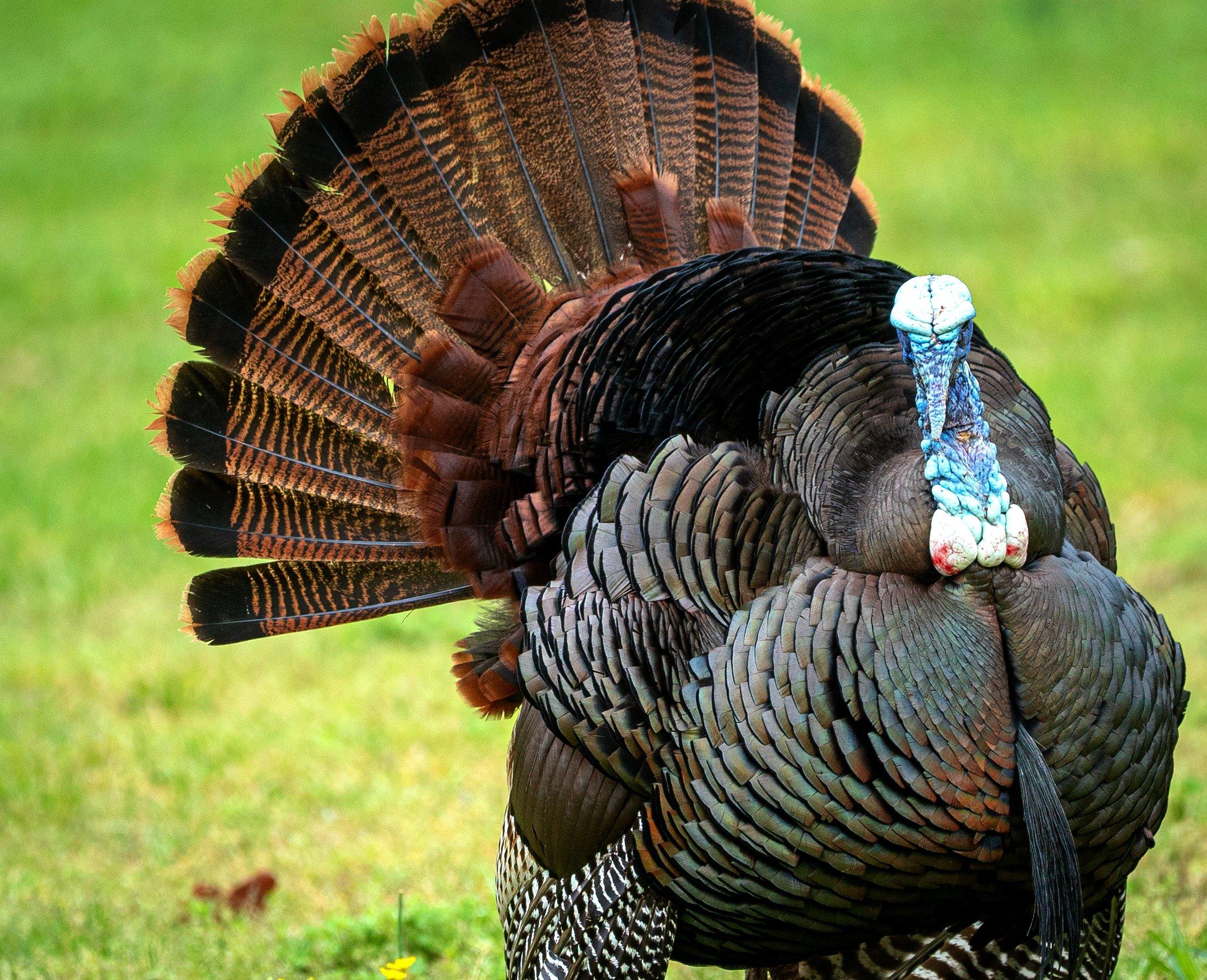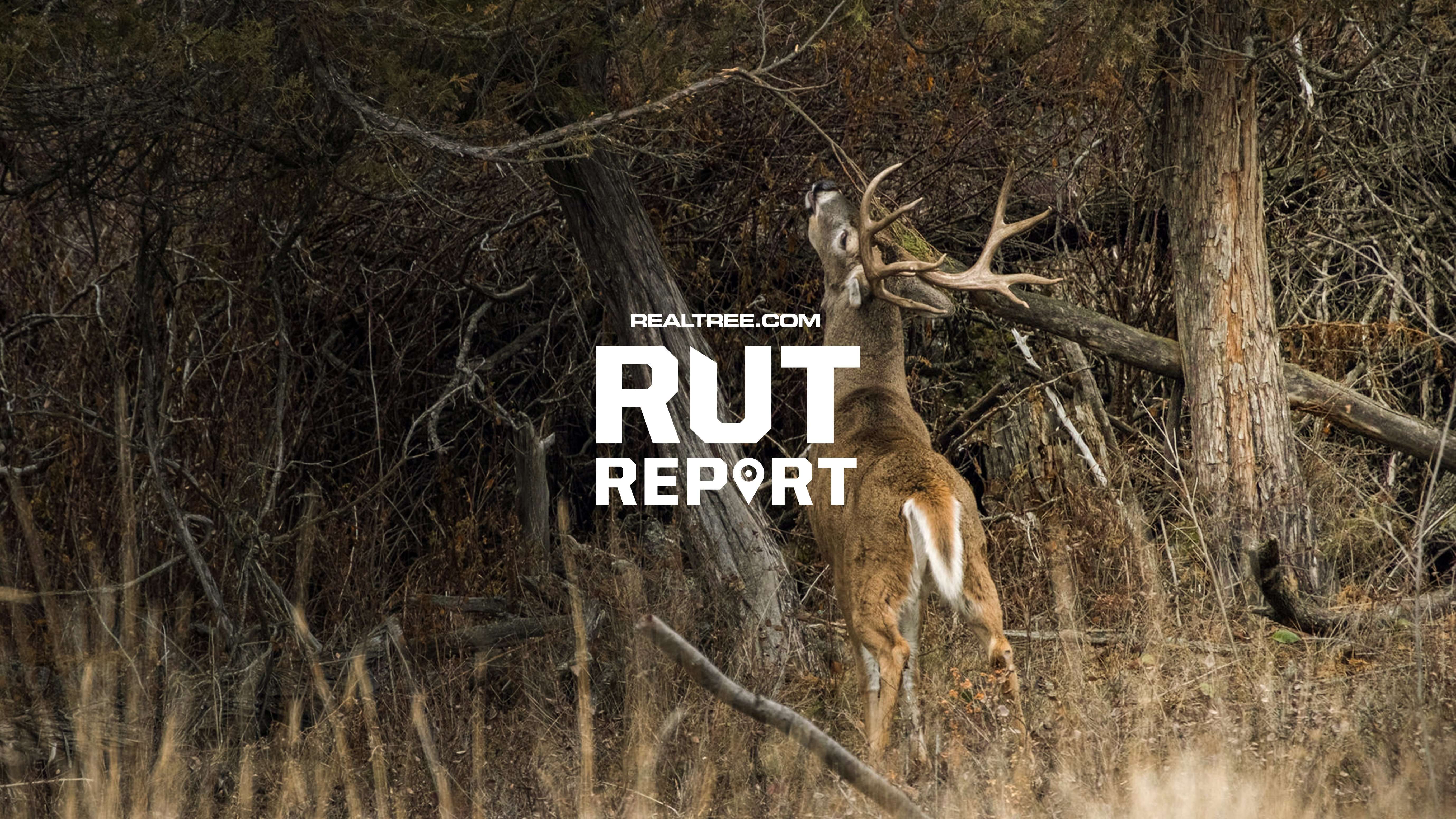Hunters might find better days ahead in some parts of the South, but tougher prospects in others
The southeastern United States is iconic in the annals of turkey hunting, but the region has taken some hits recently. Bird numbers have declined in many areas, prompting concerned biologists to curtail or change seasons. Still, hunters press on, chasing the gobble and remaining optimistic for an upturn.
Depending on where you hunt, Spring 2024 might — or might not — bolster those hopes. A few states could offer historically good hunting. Others, however, are just holding steady or even down somewhat from previous years.
Here’s a look at what Southeastern turkey hunters can expect this spring.

Many areas of the Southeast are primed for a good Spring 2024 turkey season. Photo by B. Johnson
Alabama
Brandon Earls, upland game-bird coordinator for the Alabama Department of Conservation and Natural Resources, said there isn’t much positive news for 2024.
“There was no significant increase in observations of jakes in the 2023 Avid Turkey Hunter Survey compared to 2022, so there may not be an abundance of 2-year-old toms running around in Spring 2024,” he said. “Also, the 2023 annual brood survey resulted in an average of 1.26 poults observed per hen. Researchers consider 2 poults per hen as the threshold for a population to sustain itself, and our observations have been below that for a decade.”
Based on statewide poult-per-hen averages, all regions of Alabama continue to indicate a population decline, Earls said. The best production the past few years has occurred in the piedmont (east-central Alabama) and southwestern Appalachian (north-central to northeastern Alabama) regions, although poult-per-hen ratios in those areas are still lower than 2.
A post-season survey indicated that almost 69,000 Alabama hunters shot more than 47,000 gobblers during Spring 2023.
Read More: Turkey Hunting in Alabama
Arkansas
“The overall outlook for Spring 2024 is positive,” said Luke Naylor, Wildlife Management Division chief for the Arkansas Game and Fish Commission. “Since 2020, reproductive estimates based on brood surveys have been on an upward trend. The summers of 2022 and 2023 saw some of the highest reproduction in the past decade, thanks largely in part to good weather.”
Naylor said the Ozark and Ouachita mountain ecoregions have seen the best reproductive trends the past couple of years. That, combined with continuing habitat efforts, should produce some good opportunities in those areas.
In Spring 2023, Arkansas hunters checked in 9,194 turkeys, which was a 21% increase from 2022. The harvest in the Ozarks increased significantly — 37%.
Read More: Turkey Hunting in Arkansas
Florida
Unlike many of its neighbors, Florida seems to keep chugging along turkey-wise, offering consistently good hunting. 2024 likely won’t be different.
“Our statewide brood survey indicated successful hatches in 2021 and 2022, so there is the potential for a lot of 2- and 3-year-old birds on the landscape this spring,” said Juliana Ofalt, wild turkey and furbearer management program coordinator for the Florida Fish and Wildlife Conservation Commission’s Division of Hunting and Game Management.
State wildlife management areas with the highest turkey harvest numbers during Spring 2023 included Three Lakes, Kissimmee Chain of Lakes Area, and Richloam, Ofalt said. WMAs with the least number of hunter days per turkey harvested during 2023 — a good indicator of turkey populations — included Guana River, Spirit of the Wild, and Okaloacoochee Slough.
Overall, an estimated 25,056 active hunters shot about 11,382 turkeys during Spring 2023. Hunters can view turkey distribution and abundances throughout Florida on the state’s Wild Turkey Distribution Map.
Read More: Turkey Hunting in Florida
Georgia
Emily Rushton, senior wildlife biologist and wild turkey project leader for the Georgia Department of Natural Resources, said the 2024 outlook is about average.
“We had an average number of poults per hen produced in 2022, so I don’t expect a particularly high or low number of adult gobblers on the landscape,” she said. “Our best region, poult production-wise, in 2022 was the lower coastal plain. So, our hunters in southern Georgia may be able to expect more gobblers on the landscape.”
Rushton said Georgia hunters took about 11,911 gobblers during Spring 2023, which marked an increase of about 2,000 birds from 2021, which was the state’s first season under new regulation frameworks.
Read More: Turkey Hunting in Georgia
Kentucky
“My outlook for Spring 2023 turkey hunting in Kentucky is what I’d call average,” said Zak Danks, wild turkey program coordinator for the Kentucky Department of Fish and Wildlife Resources. “The 2022 hatch should be influential on the 2024 harvest, and it was just decent — not great — [and] comparable to 2019, 2020 and 2022. There will be some carryover of gobblers hatched in 2021, but they will be harder-to-harvest 3-year-olds. I doubt we will see the harvest approach last year’s total, when more than 35,000 birds were harvested.”
Danks said good production in 2021 resulted in more 2-year-old gobblers for 2023. Further, weather conditions were good on opening day. The Spring 2023 harvest was 33% higher than that of 2022 and 22% higher than the five-year average.
“We’re bound to come down from the short-term high seen last year, and I expect our statewide harvest to be around 27,000 to 30,000 birds,” he said.
Kentucky’s brood survey analysis indicated a dip in 2022 poult production in every region (west, central and east).
“The west dropped less, so it looks more promising than the central and east regions, where bird numbers may be down a little,” Danks said. “I can’t say with much confidence how things will look on a local level, but there will no doubt be pockets of better or worse bird numbers across the state.
Read More: Turkey Hunting in Kentucky
Louisiana
Cody Cedotal, resident small game/wild turkey program manager with the Louisiana Dept. of Wildlife and Fisheries, said spring prospects in the Pelican State look moderate to good because of increased turkey production the past few years.
“We have seen good reproduction in the last three years in the southeastern and northwestern regions of the state, which should translate to increased sightings and encounters for turkey hunters in those areas,” he said. “Turkey populations in management regions along the Mississippi River continue to struggle a bit, but dry conditions during the nesting and brood rearing periods in recent years seems to be helping reproduction in these areas also.”
In Spring 2023, about 24,400 Louisiana hunters shot about 5,000 turkeys.
Read More: Turkey Hunting in Louisiana
Mississippi
The Magnolia State might be the shining star of the Southeast in Spring 2024. In fact, Adam Butler, wild turkey program coordinator with the Mississippi Department of Wildlife, Fisheries, and Parks, said the outlook there is extremely bright..
“After slumping through the 2010s, we have been on a solid rebound over the past few years,” he said. “The 2022 hatch was the best since the mid-1990s. Those birds will be 2-year-olds this spring. The proportion of hens with broods has been up nearly a third in each of the past three to four summers — all indicators the population is on an upswing. The 2023 harvest estimate was the highest in 20 years, and with decent weather, I predict we’ll likely top that figure in 2024.”
The 2023 harvest was about 36,400 gobblers, which translates to a population estimate of about 325,000 turkeys. Butler said extrapolations from hunter surveys suggest about 65,399 Mississippi turkey hunters spent 603,779 days afield during Spring 2023, both of which were records.
“In all honesty, the entire state should be better than average this year — no bad spots,” he said. “The 2022 hatch was just that good. Reports from deer hunters all over the state this fall and winter have indicated more gobbler sightings than normal, frequently in large groups. The lands along the margins of the Mississippi River, which are historically some of the state’s best turkey habitat, are reporting higher numbers than they’ve seen in a long time — maybe decades — although this probably won’t help traveling turkey hunters much because almost all that land is in privately held hunting clubs.”
Read More: Turkey Hunting in Mississippi
North Carolina
Hannah Plumpton, upland game bird biologist with the North Carolina Wildlife Resources Commission, said hunters there can expect the Spring 2024 season to be similar to those of the past few years — in other words, pretty good.
“The 2022 results from our 2022 summer observation survey were similar to our 10-year average,” she said. “This, combined with the continued high harvest numbers, suggest that the statewide turkey population remains stable.”
For several years, surveys and harvest monitoring have suggested that eastern North Carolina has the most robust turkey populations, Plumpton said..
“That’s not to say that good hunting doesn’t exist in the piedmont and mountain regions, but in general, those regions have not been as productive in recent years.”
North Carolina hunters took 24,089 turkeys in Spring 2023.
Read More: Turkey Hunting in North Carolina
South Carolina
“With ongoing trends of less-than-desirable recruitment of poults and declining harvest figures, the outlook for the 2024 spring gobbler season in South Carolina is only fair,” said Charles Ruth, big-game program coordinator for the South Carolina Department of Natural Resources.
During Spring 2023, about 50,000 South Carolina turkey hunters took 13,074 birds, which was down about 3% from the 2022 harvest.
Still, bright spots exist. Ruth pointed to the Sumter National Forest in the piedmont region and the Webb Wildlife Center Complex in Hampton County in the coastal plain.
Read More: Turkey Hunting in South Carolina
Tennessee
Roger Shields, wild turkey program coordinator with the Tennessee Wildlife Resources Agency, said he thinks 2024 should be another great season for Volunteer State hunters.
“We had good reproduction in 2021 and saw a nice harvest last spring as a result,” he said. “We had another great year of reproduction in 2022, and we’re getting lots of reports of turkey numbers higher than they’ve been for the past five to 10 years. Therefore, I expect a good season this coming spring.”
And Shields said that should hold true throughout the entire state.
“I actually think we should be more balanced than we’ve been for many years,” he said. “The central part of the state traditionally holds the greatest density of birds, but I’m hearing reports of some really good flock numbers in eastern Tennessee, and the western part of the state has had the best reproduction for the past two years in a row now, so numbers there are coming back strong as well.”
Tennessee hunters took 31,802 turkeys during Spring 2023.
Read More: Turkey Hunting in Tennessee
Virginia
Mike Dye, upland game bird biologist with the Virginia Department of Wildlife Resources, said he expects the state’s Spring 2024 harvest to drop slightly but remain higher than the long-term average.
“We've had several years of good harvests, capped off with last season setting a new record-high spring harvest of 24,447,” he said. “The past two summer poult counts — 2022 and 2023 — have been below the long-term average, and as such, I anticipate there will be fewer birds available for harvest. I do not anticipate a dramatic drop but expect to see a slight reduction.”
Dye said turkey populations in the eastern and southeastern portions of the state are strong, as are pockets in the northern Shenandoah Valley and parts of the southwestern mountains.
Read More: Turkey Hunting in Virginia
Don’t Miss: ARE TURKEY SEASONS OPENING TOO SOON?












